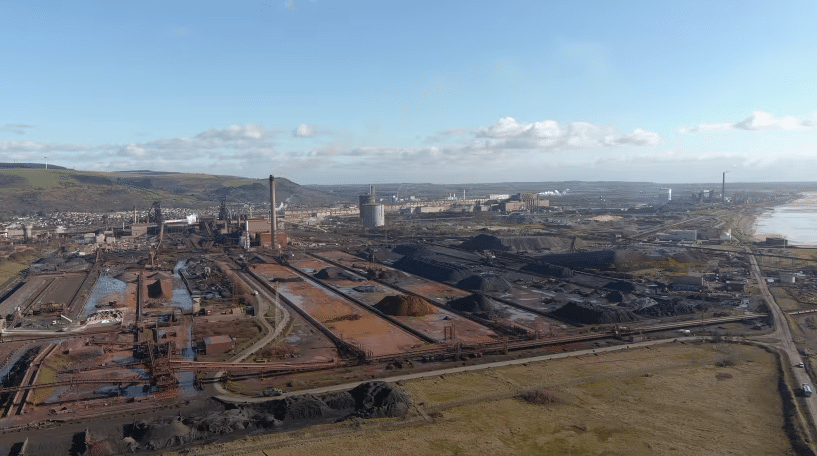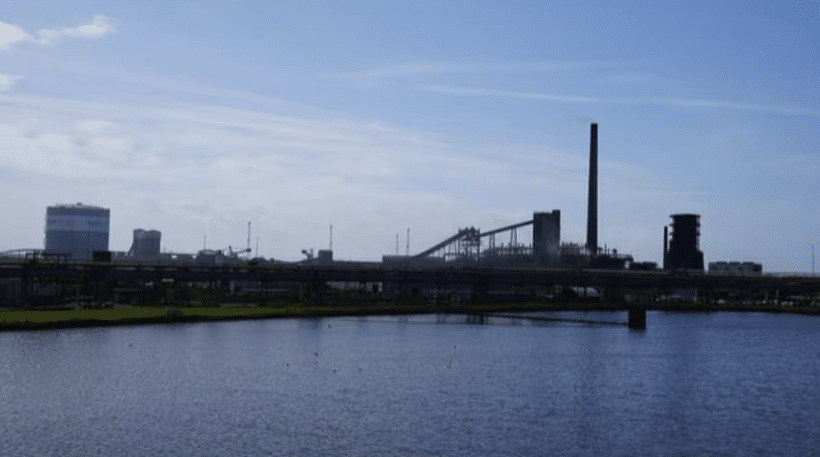Today marks the end at one of the biggest steelworks in the world as the last blast furnace at Port Talbot in Wales shuts down. Tata UK’s chief executive admitted it would be a “difficult day of great emotion and reflection”.
The final plant in Port Talbot, Blast Furnace 4 – will be fully shut down at around 5pm, with the last steel made late this (Monday) evening.
Tata is replacing the furnace with a greener electric arc furnace which will use UK-sourced scrap steel, but that will not be operational until 2028.
Around 2,800 jobs are being lost at the country’s biggest steelworks but it’s also the wider effect which will impact the entire community as the entire supply chain is impacted.

Secretary of state for Wales and chair of the Transition Board, Jo Stevens, said….
“Businesses and workers that supply Tata have been feeling the impact of the changes at Port Talbot for months.
That’s why I announced this £13.5m fund within weeks of the new UK government coming into office, and have worked at pace with partners in Welsh government and the council to get applications open.
I encourage affected businesses to come forward and check their eligibility for this financial support, as part of the wider support package we are putting in place. This government will back workers and businesses whatever happens.”

TATA TIMELINE
Steelmaking at the Port Talbot complex began with the Margam Iron and Steel Works, completed between 1923 and 1926.
Port Talbot Steelworks is an integrated steel production plant in Port Talbot, capable of producing nearly 5 million tonnes of steel slab per annum. This makes it the larger of the two major steel plants in the United Kingdom and one of the largest in Europe. Over 4,000 people work at the plant.
An explosion at the Port Talbot plant in November 2001 killed three men. Len Radford, 53, Stephen Galsworthy, 25, and Andrew Hutin, 20, died when blast furnace five erupted, sending molten liquid down on them. Twelve other men were seriously injured in the blast. The blast heavily damaged No.5, which was rebuilt and resumed operation from 2003 onwards.
In July 2012 Tata Steel were fined £500,000 over the 2006 death of worker Kevin Downey at the Port Talbot plant. Engulfed in steam during a night shift, Downey wandered into a channel of molten slag heated to 1500 °C (2700°F). He was rescued by colleagues, but suffered 85% burns and died later that day. At the time of the accident, the Port Talbot plant was controlled by Corus Steel UK, and taken over by Tata in 2007.
Tata Steel announced on 30th March 2016 it may pull out of its UK operations, including Port Talbot. It provided as reasons “imports of Chinese steel, high energy costs and weak demand. Plans to save the steelworks were put on hold when potential buyers indicated their intention to withdraw from the bidding process due to the UK voting in favour of withdrawing from the EU”. However, the Brexit vote had the opposite effect with Tata Steel reconfirming commitment to the self-sustaining finance of its UK operations, while selling the EU – Netherlands operations. The UK Government said it “remains committed to supporting a sustainable, long-term future for steel making in the UK”.
In September 2023 the UK Government agreed to pay Tata a £500 million subsidy in order for it to invest in an electric arc furnace. This was in a bid to cut emissions due to the carbon-intensity of the current blast furnaces. Trade unions worried that the increased autonomy of the electric arc furnace would lead to job losses. Unions presented the firm with a plan to keep one of the two blast furnaces open until 2032 in order to minimise job losses. The firm rejected the plan, announcing in January 2024 that they would close both blast furnaces, putting 3,000 jobs at risk.
September 2024 – The UK’s biggest steelworks will cease production after more than 100 years, leading to thousands of job losses across South Wales.







